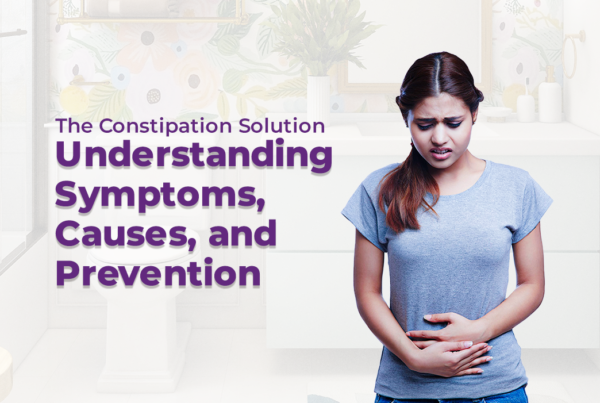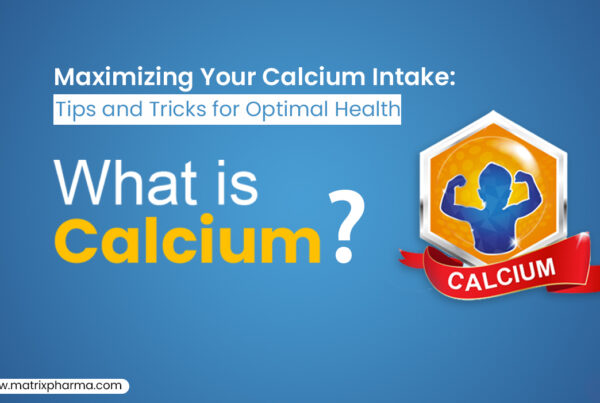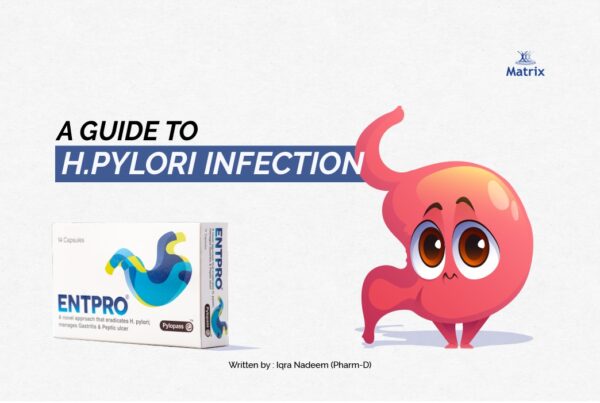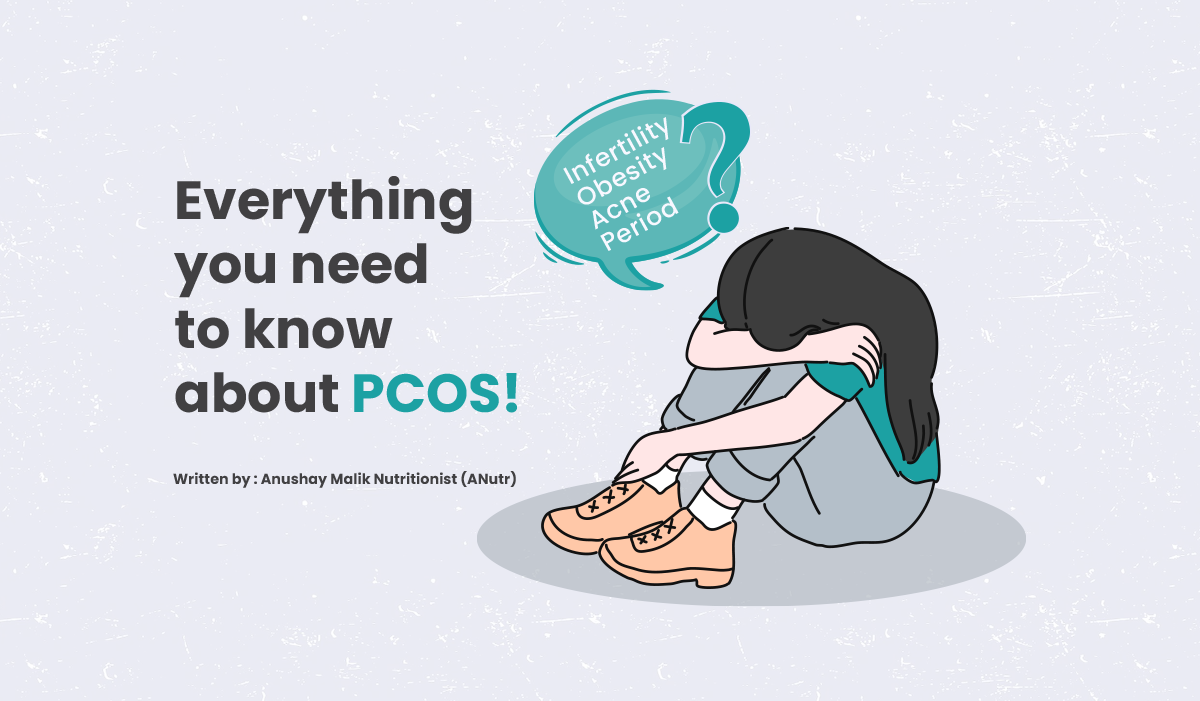
What is PCOS?
Polycystic Ovary Syndrome (PCOS) is a combination of symptoms caused by a complex hormonal condition in women that affects how ovaries work and interferes with the reproductive system.
What causes PCOS?
The root cause of PCOS is not evident. However, it is likely to be influenced by a combination of factors such as lifestyle, environment, and genetics.
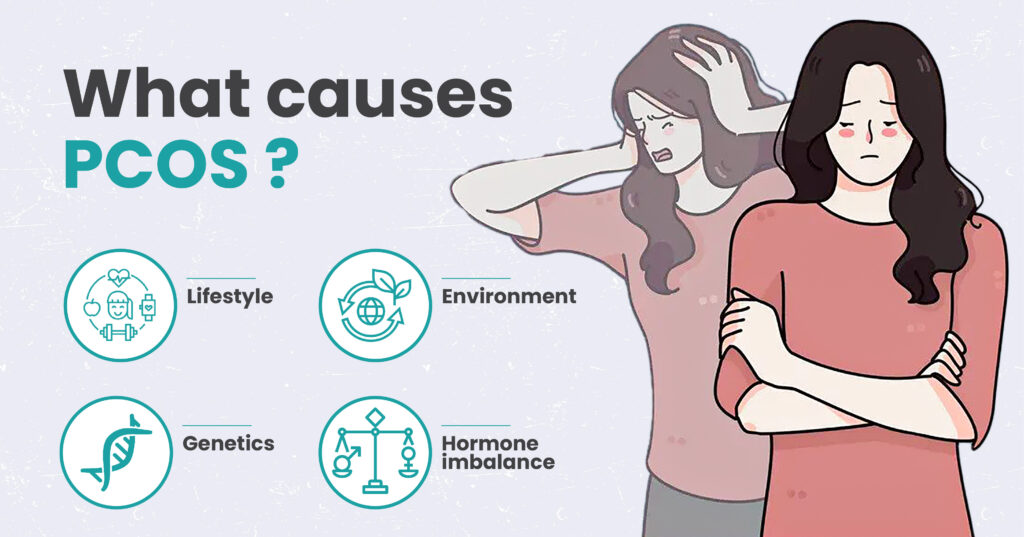
Symptoms of PCOS
- Irregular or no periods at all
- Difficulty getting pregnant
- Weight gain
- Acne
- Excessive hair growth on face, back, neck, chest, stomach
- Oily skin
- Loss of hair on head or thinning of hair
- Depression, anxiety, and mood swings
- Sleep disturbances
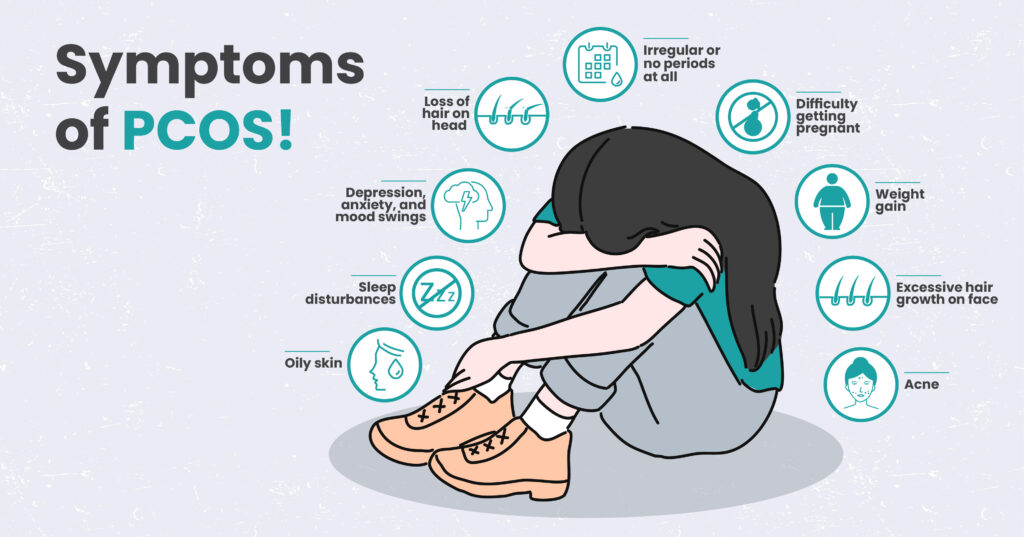
Understanding PCOS
PCOS disrupts the endocrine system, also known as the hormone system. Insulin is a hormone that regulates blood sugar levels in the body. Women with PCOS are resistant to the action of insulin which causes their body to produce high levels of insulin. Elevated levels of insulin leads to increased production of hormones like testosterone. Many of the PCOS symptoms that occur are due to high levels of male-like hormones mainly testosterone.
PCOS and Fertility
In women with PCOS, the hormonal imbalance interfere with the growth & release of eggs from the ovaries (Ovulation).
Women with PCOS have larger ovaries than normal. They contain multiple underdeveloped sacs called follicles. These follicles have immature eggs that often fail to release during the monthly cycle. Therefore, ovulation does not take place.
How is PCOS Diagnosed/How do you know if you have PCOS
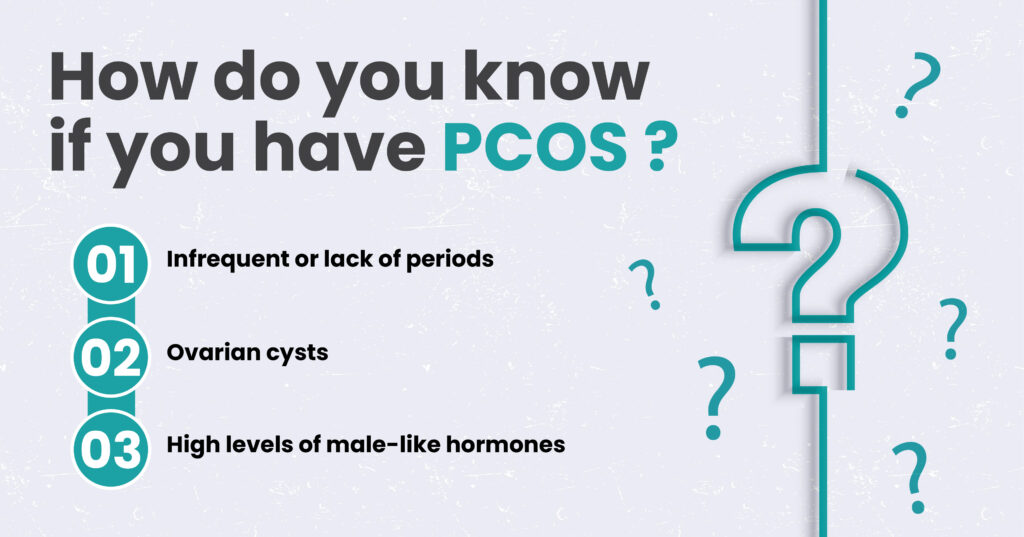
To be diagnosed with PCOS, you need to be present with at least 2 of the conditions below:
- Infrequent or lack of periods indicating that the egg is not being released regularly from the ovaries (ovulation)
- Ovarian cysts detected by a pelvic ultrasound
- High levels of male-like hormones (androgens) detected by a blood test
References:
https://www.nhs.uk/conditions/polycystic-ovary-syndrome-pcos/symptoms/

